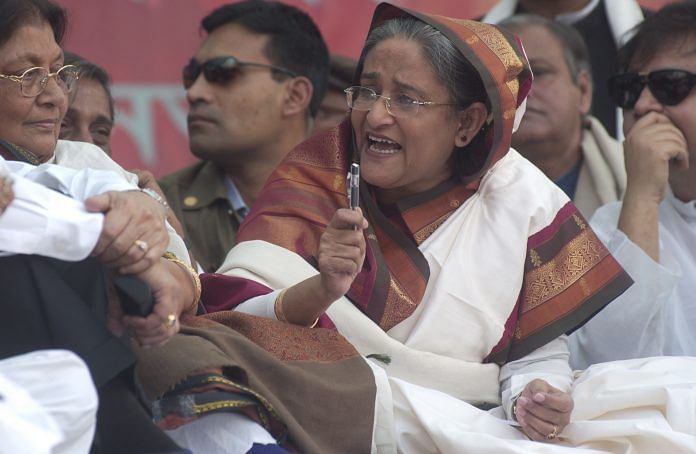The decision came in the aftermath of a major, countrywide student agitation demanding reform in the system, with capital Dhaka coming to a near-standstill.
Last month, the Bangladesh government decided to end the system of quota in government. The decision came in the aftermath of a major, countrywide student agitation demanding reform in the system, with capital Dhaka coming to a near-standstill. There was initial jubilation in the country as it was seen as a victory for the protesting students, but it also left an open question about the rights of women, ethnic minorities and the physically challenged.
Reservation in government jobs had its roots in the policy for recruitment to public service adopted in September 1972. The major objective behind its introduction was to achieve equitable representation of people from all the districts in various services and posts. Under the system, 56 per cent of government jobs were reserved for the descendants of freedom fighters, as well as women, the physically challenged, ethnic minorities, and backward districts. The remaining 44 per cent were open to all.
Resentment against the system had been brewing for a long time. A popular argument against the quota system was that it was discriminatory, and that the meritorious were finding it harder to get appropriate jobs. Earlier, there were demands for a review, but the government did not touch the issue, fearing a major political backlash because the biggest beneficiary of the quota system were descendants of freedom fighters who remain the major support base of the current ruling party, the Awami League.
The major demands of the agitating students included the introduction of a unified age limit in government jobs, review of the quota system in the recruitment process, including the Bangladesh Civil Services (BCS) examination, filling vacant posts from the merit list if enough candidates could not be found from the quota categories, and reducing the quota share to 10 per cent from 56.
Constitutional obligations
The scrapping of the entire quota system came as a major surprise to many. Prime Minister Sheikh Hasina, in her speech in parliament, said if people did not want it, the government would get rid of it. The students wanted a review of the system, not complete abolition.
However, rights groups have expressed reservations on the government decision and the implications on opportunities for women, the physically challenged and ethnic minorities. They have argued that the quota system could not be scrapped in its entirety because of the government’s constitutional obligations. As they argue, the constitution stands to ensure equal rights for all citizens. Hence, rights groups are demanding special provisions for ensuring the rights of women, small ethnic groups and disadvantaged communities.
The agitation against quota is not dissociated from politics. Some claims have been made about the Islami Chhatra Shibir, the student wing of Jamaat-e-Islami, a religious political party, in instigating students. Although proof is awaited about the legitimacy of the claim, it can be recalled that religious groups had earlier raised an objection to job reservations for women. In a country like Bangladesh, where the government remains a major employer, issues like reservations are a potent tool to gather popular support against the incumbent.
With the current step, the government might have been able to defuse a major crisis. Had it not responded in time, this might have had a spiralling effect. However, challenges for the government might not be over yet as some analysts feel that the current decision has established a negative precedent in the country and could have a major impact in future — encourage the belief that any policy of the government could be forced to be changed through street protests.
This piece was previously published on orfonline.org



